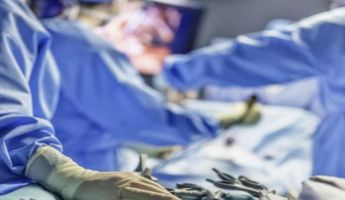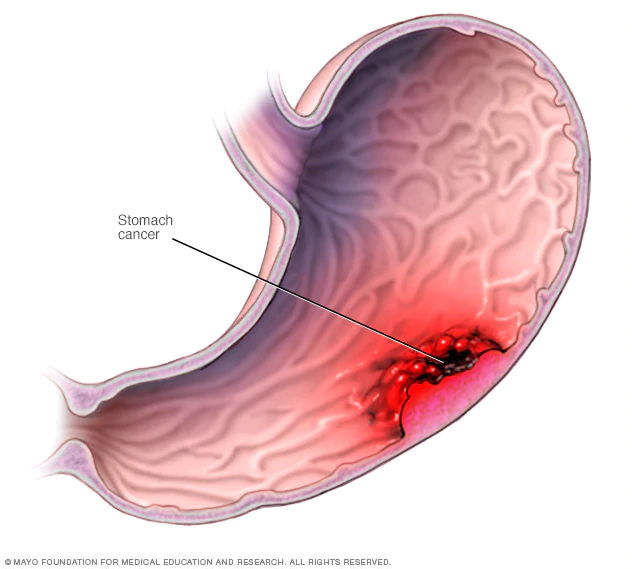Stomach Cancer Treatment in Munich
Search and Compare the Best Clinics and Doctors at the Lowest Prices for Stomach Cancer Treatment in Munich

Find the best clinics for Stomach Cancer Treatment in Munich
No pricing info available
Ukraine offers the best prices Worldwide
Price: $ 2,487
From 166 verified reviews
Martin xxx, 22 September 2020
Von Anfang bis Ende sehr freundliche und kompetente Mitarbeiter.
University Hospital of Munich (LMU), located in Professor Huber Platz, Munich, Germany offers patients Stomach Cancer Treatment procedures among its total of 223 available procedures, across 26 different specialties. Currently, there's no pricing information for Stomach Cancer Treatment procedures at University Hospital of Munich (LMU), as all prices are available on request only. There is currently a lack of information available on the specialists practicing at the Hospital, and they are not accredited by any recognized accreditations institutes
WHY US?
At Medijump, we're making medical easy. You can search, compare, discuss, and book your medical all in one place. We open the door to the best medical providers worldwide, saving you time and energy along the way, and it's all for FREE, no hidden fees, and no price markups guaranteed. So what are you waiting for?

Free

Best Price

Widest Selection

Risk-Free
What you need to know about Stomach Cancer Treatment in Munich

If you have been diagnosed with stomach cancer, your doctor will discuss your treatment options with you. Your treatment options depend on several factors, including your overall health, the stage of your cancer, your age, and your personal preference. Stomach cancer may be treated with surgery, chemotherapy, radiation therapy, targeted therapy, or immunotherapy.
What does a Stomach Cancer Treatment Procedure Involve?
Surgery for stomach cancer is performed to remove all of the stomach cancer and some of the surrounding healthy tissue, your doctor may remove early-stage tumors from the lining of your stomach, remove a portion of your stomach (subtotal gastrectomy), remove your entire stomach (total gastrectomy), and remove lymph nodes to look for cancer. All of these surgeries are performed under general anesthetic. With chemotherapy, a drug is used to kill cancer cells, while with radiation therapy, high-powered energy beams are used to kill cancer. Your doctor may also recommend targeted therapy or immunotherapy, which uses targeted drugs or your own immune system to fight cancer.
How Long Should I Stay in Munich for a Stomach Cancer Treatment Procedure?
After surgery, you will need to stay in the hospital for three to eight days and stay in Munich for seven to fourteen additional days after you are discharged. If you undergo immunotherapy, chemotherapy, radiation therapy, or targeted therapy, your length of stay depends on how many cycles are needed for your specific case.
What's the Recovery Time for Stomach Cancer Treatment Procedures in Munich?
The total recovery time until you can return to your normal routine may take several months, but you should be able to return to work within 4-6 weeks. If you only have therapy, you should be able to return to most of your activities when you do not experience any symptoms that interfere with your ability to perform your duties.
What sort of Aftercare is Required for Stomach Cancer Treatment Procedures in Munich?
You need to adjust to a new diet after the surgery so make sure to talk to a dietitian about what to eat. Regular exercise is really important to keep your body healthy, you can start walking as soon as you can. Make sure to schedule follow-up checkups with your doctor to monitor your condition and you may do this with your local doctor at home or your doctor in Munich.
What's the Success Rate of Stomach Cancer Treatment Procedures in Munich?
Treatment for stomach cancer is known to be effective, but the success rate varies depending on how early the treatment is performed as well as the stage of cancer. The side effects and risks of stomach cancer treatment, which include infection, bleeding, damage to other organs, problems with anesthetic, hair loss, and fatigue.
Are there Alternatives to Stomach Cancer Treatment Procedures in Munich?
If you prefer not to undergo treatment or too frail for any type of treatment, you should consult with your doctor and cancer team on the best alternative for you. In some cases, surgery to relieve only the signs and symptoms is recommended.
What Should You Expect Before and After the Procedure
Stomach cancer causes symptoms such as heartburn, nausea, pain, vomiting, and fatigue that may interfere with your daily life. It is also dangerous and it can spread to other organs. After the surgery, you should no longer experience any symptoms and you can return to your normal life.
Whilst the information presented here has been accurately sourced and verified by a medical professional for its accuracy, it is still advised to consult with your doctor before pursuing a medical treatment at one of the listed medical providers
No Time?
Tell us what you're looking for and we'll reachout to the top clinics all at once
Enquire Now

Popular Procedures in Munich
Prices Start From $1,314

Prices Start From $512

Recommended Medical Centers in Munich for Stomach Cancer Treatment

- Interpreter services
- Translation service
- Religious facilities
- Medical records transfer
- Medical travel insurance
- Health insurance coordination
- TV in the room
- Safe in the room
- Phone in the room
- Private rooms for patients available

- Interpreter services
- Translation service
- Religious facilities
- Medical records transfer
- Medical travel insurance
- Health insurance coordination
- TV in the room
- Safe in the room
- Phone in the room
- Private rooms for patients available

- Interpreter services
- Translation service
- Religious facilities
- Medical records transfer
- Medical travel insurance
- Health insurance coordination
- TV in the room
- Safe in the room
- Phone in the room
- Private rooms for patients available

- Interpreter services
- Translation service
- Religious facilities
- Medical records transfer
- Medical travel insurance
- Health insurance coordination
- TV in the room
- Safe in the room
- Phone in the room
- Private rooms for patients available
Stomach Cancer Treatment in and around Munich
About Munich
Munich is the largest city in Southern Germany and it is one of a few places on earth where traditional and modern sit side by side, with its royal palaces and high-tech cars. Known as the ‘city of art and beer,’ this city is famous for its annual beer festival known as Oktoberfest. What most people do not realize is that Munich is also one of the world’s most famous medical tourism destination. Thanks to the famous German education system that creates skilled specialists, as well as state-of-the-art medical centers that invest in the latest medical technology, medical tourism in this city is a booming business that continues to grow at a fast rate. International patients usually travel to the city for quality rather than the price.
Popular Parts of Munich
Munich boasts a beautiful historic center, amazing German food, large parks and gardens, and beer halls packed with welcoming people. Visitors can explore numerous historical buildings, such as the Church of St. Peter and Frauenkirche. These two buildings have been around for centuries and are located in Munich’s Old Town. One of the most popular attractions in the city is Alte Pinakothek, which is an important art museum that houses over 800 works from the 14th – 18th centuries from German masters. Those who want to have a picnic, hike, simply relax or even try surfing should visit the English Garden. Other popular places include Dachau Concentration Camp, Nymphenburg Palace, BMW Museum, and Deutsches Museum.
Transport in Munich
The international airport of Munich is Munich Airport, which is the second-busiest airport in Germany in terms of passenger traffic. It serves international flights from many cities around the world, including Dubai, Bangkok, and Atlanta. Munich has a comprehensive network of public transportation that will take visitors virtually anywhere around the city. The most common transit system is the U-Bahn, which is a fast and easy underground subway system. Buses, trams, and commuter trains are also available and each has a vast network. Taxis are easy to hail, reliable, and safe. However, they are a bit pricey and Uber operates in Munich.
Visas in Munich
As a member of the Schengen Area, Germany allows citizens of several countries, including Australia, New Zealand, the US, and Poland to enter and stay in the country without a visa for up to 90 days. Citizens of other countries not listed in the visa-free entry need to obtain a visa to visit the country. Always check the requirements for Germany Visa Application before applying.
Weather in Munich
From June to August is the summer, which is a popular time to enjoy outdoor activities as the temperatures hover around 24°C. On very hot days, the temperatures can reach 30°C. Autumn (September – October) and spring (March-May) has pleasant weather with mild temperatures. Winter can be very cold, with temperatures dropping as low as -10°C.
Additional Info
- Local Currency: Euro (EUR) is the official currency. 1 EUR is approx. 1.12 USD.
- Money & Payments: ATMs are easy to find. Credit cards are not widely accepted and tipping is common practice.
- Local Language: The official language is German. Many people, particularly in tourism areas, understand English to some extent.
- Local Culture and Religion: Christianity is the largest religion in the city, followed by Islam, Buddhism, Hinduism, and Judaism.
- Public Holidays: Munich celebrates numerous holidays, including New Year’s Day and Christmas Day. It also hosts several festivals throughout the year, such as Oktoberfest in October.
Popular Searches
- Plastic Surgery in Thailand
- Dental Implants in Thailand
- Hair Transplant in Thailand
- Breast Augmentation Thailand
- Gastric Sleeve in Thailand
- Gender Reassignment Surgery in Thailand
- Laser Hair Removal in Bangkok
- Botox in Bangkok
- Dermatology in Bangkok
- Breast Augmentation in Bangkok
- Coolsculpting in Bangkok
- Veneers in Turkey
- Hair Transplant in Turkey
- Rhinoplasty in Turkey
- Stem Cell Therapy in Mexico
- Rhinoplasty in Mexico
- Liposuction in Mexico
- Coolsculpting in Tijuana
- Rhinoplasty in Korea
- Scar Removal in Korea
- Gastric Sleeve in Turkey
- Bone Marrow Transplant in India
- Invisalign in Malaysia
- Plastic Surgery in the Dominican Republic
- Tummy Tuck in the Dominican Republic
- Plastic and Cosmetic Surgery in Poland
- Rhinoplasty in Poland
- Hair Implant in Poland
- Dental Implants in Poland
- IVF in Turkey

